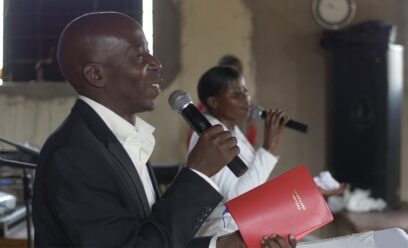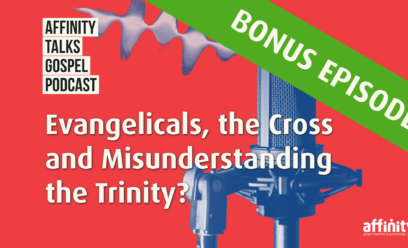Silencing Conscience: What Scotland’s Safe Access Zones Mean for Free Speech
This article was first published in our recent Social Issues Bulletin – Issue 58 which is available to download here.

In February this year, Rose Docherty, a 74-year-old grandmother, was arrested outside an abortion clinic in Glasgow for silently holding up a sign which read ‘coercion is a crime, here to talk, only if you want’. This was the first arrest under the Abortion Services (Safe Access Zones) (Scotland) Act 2024 which introduced buffer zones around abortion clinics in Scotland, making it a criminal offence to engage in certain activities within these areas.
Whilst we can all agree that certain practices of intimidation and harassment outside abortion clinics are totally unacceptable, that is not really the issue being addressed by this legislation – since harassment, intimidation, and threatening behaviour were already criminal offences. Instead, the legislation targets any attempt to persuade individuals to change their minds or those silently praying while holding signs. Whether or not you believe Christians should be protesting or present outside abortion clinics, this is a significant infringement of the most fundamental human rights and sets a dangerous precedent.
What Does the Legislation Entail?
The Act establishes safe access zones around medical facilities providing abortion services. Within these zones, it is illegal to engage in activities deemed to influence or interfere with individuals accessing or providing abortion services. This includes:
- Protests, demonstrations, or vigils related to abortion, whether silent or active.
- The offering of advice, information, or alternatives to abortion, even if done peacefully and without coercion.
- Prayer or religious observance that could be seen as attempting to dissuade someone from having an abortion.
The legislation also applies to private premises (whether homes or churches) within the zone if anything done from the private space can be seen or heard within the zone.
The legislation carries significant penalties, including fines and potential criminal records for those who breach the zones.
Concerns Over Freedom of Expression
One of the most concerning aspects of the Act is its impact on freedom of expression, freedom of assembly and freedom of conscience – fundamental rights in any democratic society. This law curtails the ability of individuals to express pro-life views in public spaces. Even silent prayer, a deeply personal act of faith, could now be criminalised within these zones.
Whilst giving evidence to the committee scrutinising the bill in the Scottish Parliament, the Minister for Public Health and Women’s Health suggested that private prayer amounts to silent judgement which can intimidate women and so should be criminalised. Whilst, it has been disputed whether silent prayer alone is covered by the restrictions, the MSP who proposed the legislation has stated that ‘performative prayer’ would be covered. The line is a narrow one between when someone is merely praying silently and when someone’s actions become performative.
Freedom of expression is enshrined in both Article 10 of the European Convention on Human Rights (ECHR) and Article 19 of the Universal Declaration of Human Rights (UDHR). While these rights are not absolute and can be restricted in the interests of public order, such restrictions must be proportionate. Criminalising peaceful speech and prayer goes beyond preventing harassment – it effectively creates censorship zones in which certain beliefs cannot be expressed.
Proponents of the law argue that safe access zones are necessary to protect women from distressing encounters when seeking abortion services. However, existing laws (e.g. breach of the peace) already prohibit harassment, intimidation, and obstruction. If harassment occurs, it should be addressed under laws already in place rather than imposing blanket bans that infringe upon civil liberties.
The principle of proportionality is key to any limitation on rights. In this case, the Act appears to extend beyond what is necessary to achieve its stated aim. It does not merely prohibit harassment (which is already illegal) but criminalises entirely peaceful actions. This overreach raises concerns about whether the law is being used to shut down moral and religious viewpoints that some find uncomfortable, rather than addressing actual harm.
The Chilling Effect
Whilst proponents will argue it is proportionate within a narrow zone around abortion clinics the issue is that it sends a signal – that certain topics should be off limits. This has a chilling effect on freedom of expression around abortion issues in general – compounding a situation where it is already very hard to openly discuss and debate abortion-related issues. Making it illegal to discuss abortion within an exclusion zone makes a statement to society that it is inappropriate to express pro-life views. There is already a lack of balance in the presentation of pro-choice and pro-life views in the media and political life in Scotland and this legislation reinforces the idea that it is wrong to express pro-life views.
This bill targets peaceful citizens, not because of anti-social behaviour but due to their pro-life views. Given Christian belief about the sanctity of all human life, the proposal also targets individuals because of their religion and belief. For many Christians and other faith groups, standing near abortion clinics to pray, offer support, or provide alternatives is an act of compassion and conscience. Criminalising such activities suggests that faith-based perspectives on life issues are unwelcome in the public sphere.
This legislation represents significant overreach on the part of the state and it seems the law is deliberately being used to shut down moral and religious viewpoints that some find uncomfortable, rather than addressing actual harm. Safe access zones are intended to silence those who hold opinions abortion advocates find ‘offensive’. But as Lord Justice Sedley said ‘Freedom only to speak inoffensively is not worth having’ (DPP v Redmond-Bate (1999) 163 JP 789: [2000] HRLR 249).
The Impact on Private Spaces
As previously mentioned, the legislation also limits what can be done on private property if it is within the radius and could be seen or heard within the public land. This is a serious restriction of human rights, preventing someone from displaying posters, etc, on their private property. If someone was holding a prayer meeting in their home that could be seen through their window this could potentially be caught by the legislation.
The radius covered by the zones also includes churches, and they are concerned that the right of churches to preach and communicate their doctrines on their own property is being unjustly interfered with. One example discussed at the committee was whether a church displaying a general religious message such as ‘Repent and Receive Forgiveness for Your Sins’ could be caught by the legislation as an attempt to influence those entering an abortion clinic given the close association between the pro-life movement and Christianity.
The Danger of Expansion
The legislation introduces buffer zones of 200 metres around abortion clinics. However, the legislation includes the possibility of the Scottish Ministers extending these zones. They can designate other premises – this could include GP practices and pharmacies where abortion pills are distributed. The distance can also be extended and there is no limit on what size these buffer zones could cover. Most of Scotland could end up covered by safe access zones and this is an inappropriate grant of blanket powers to extend provisions, without parliamentary scrutiny.
Other Areas of Application
Whilst not all Christians would believe it wise or appropriate to engage in pro-life vigils that does not mean such actions should be banned. And the biggest issue with introducing safe access zones is that it sets a dangerous precedent for the state being able to ban both protests and efforts to persuade individuals to change their minds on contentious issues.
If the state can designate areas where certain moral or religious views cannot be expressed, what is to stop future restrictions on other contentious topics? Today, it is abortion; tomorrow, it could be debates on gender, sexuality, or euthanasia. Within a free society, it is vital that we are able to disagree and engage in discussions around sensitive topics without the state seeking to stamp out fundamental rights of freedom of expression. Freedom of expression must be defended consistently, even when it involves uncomfortable or controversial subjects. A free society does not silence dissent but engages with differing views through open discussion.
Conclusion
The Abortion Services (Safe Access Zones) (Scotland) Act 2024 represents a significant shift in the balance between protecting access to services and preserving fundamental freedoms. While no one should face harassment outside a medical facility, the broad wording of this law risks criminalising peaceful, faith-based actions that pose no threat to public order. This law should concern all who value democracy, religious liberty, and the ability to engage in peaceful, public discourse. The right response is not to silence voices of compassion and conscience but to foster a society where difficult issues can be discussed with grace, respect, and truth.
As Christians, we are called to speak the truth in love (Eph 4:15) – to stand for the sanctity of life while also showing compassion to those in difficult circumstances. The challenge before us is to continue advocating for both justice and mercy, ensuring that our voices are heard, our freedoms are protected, and the value of every human life is upheld.



